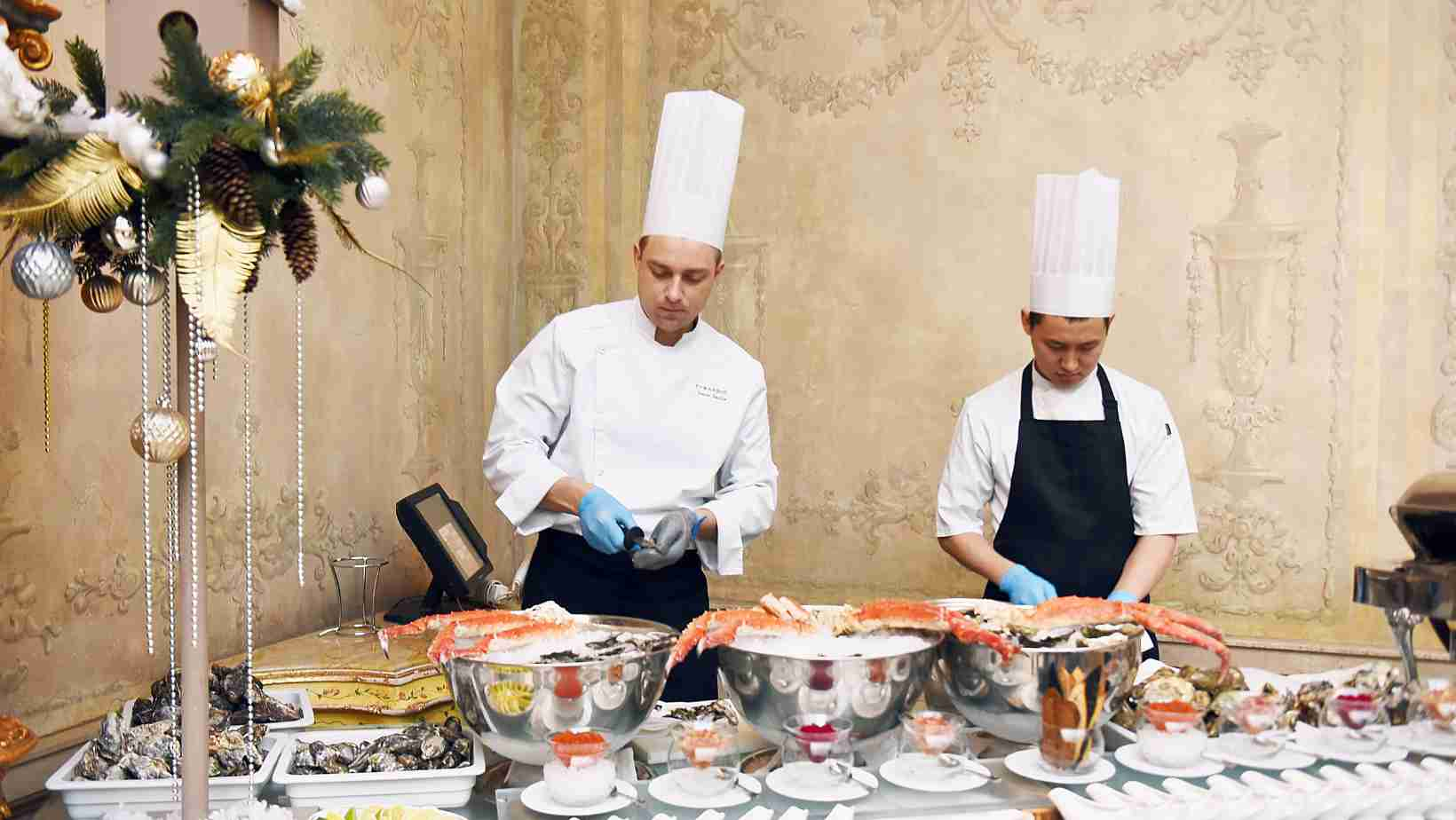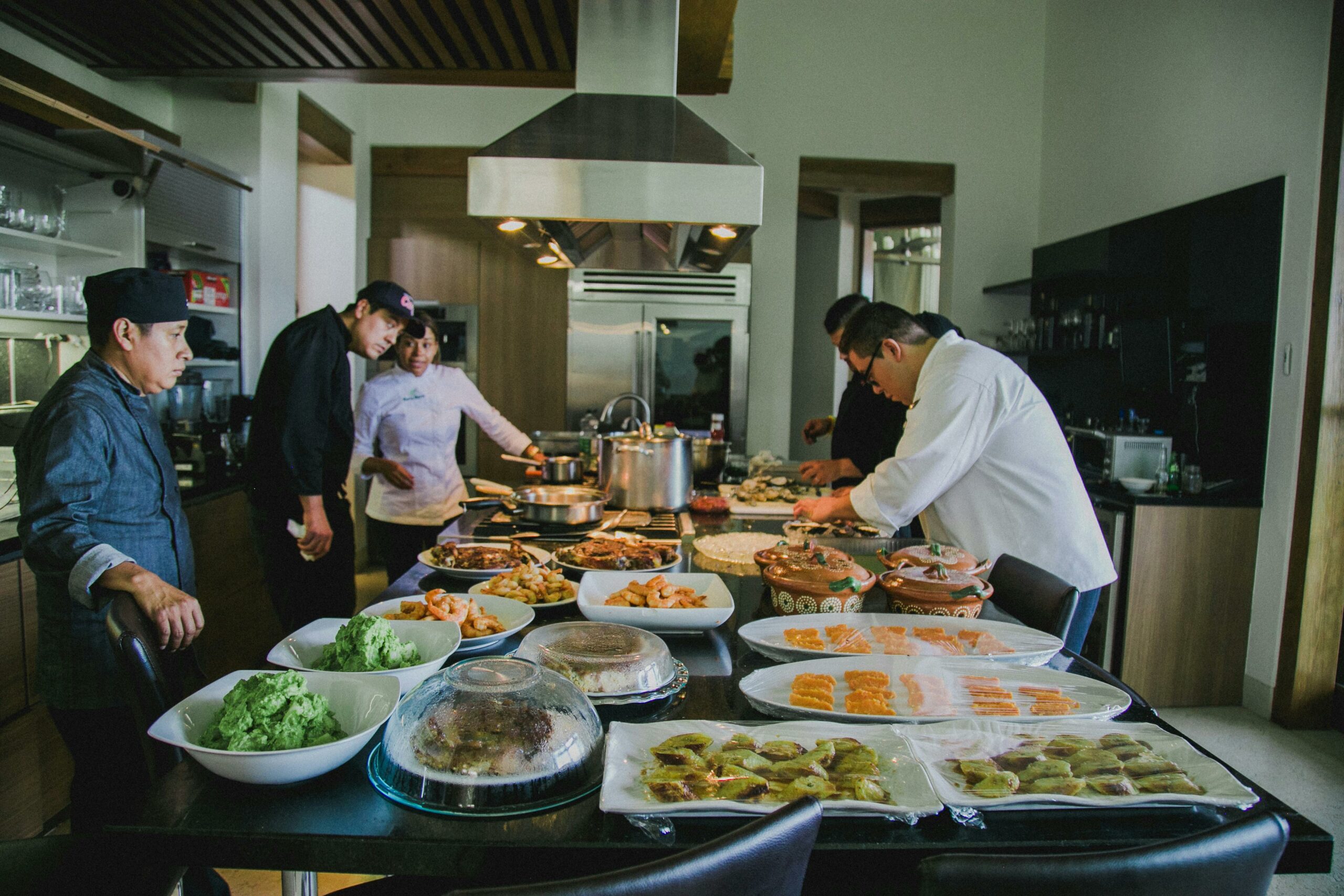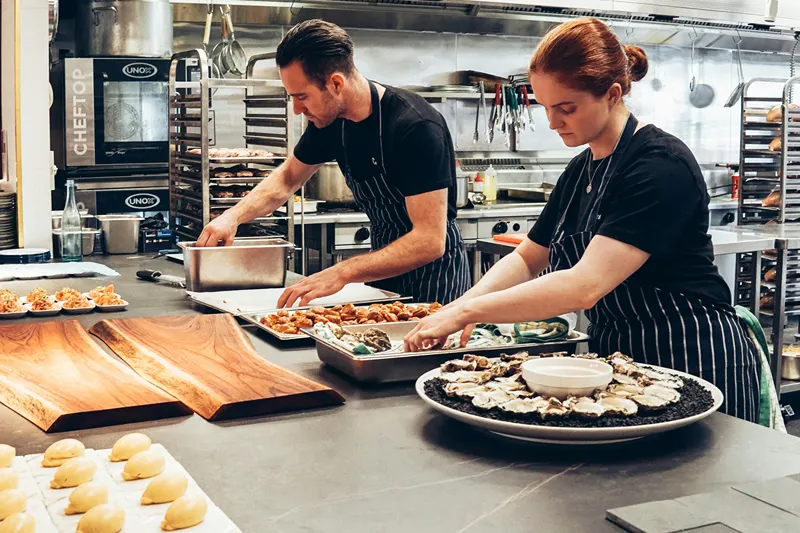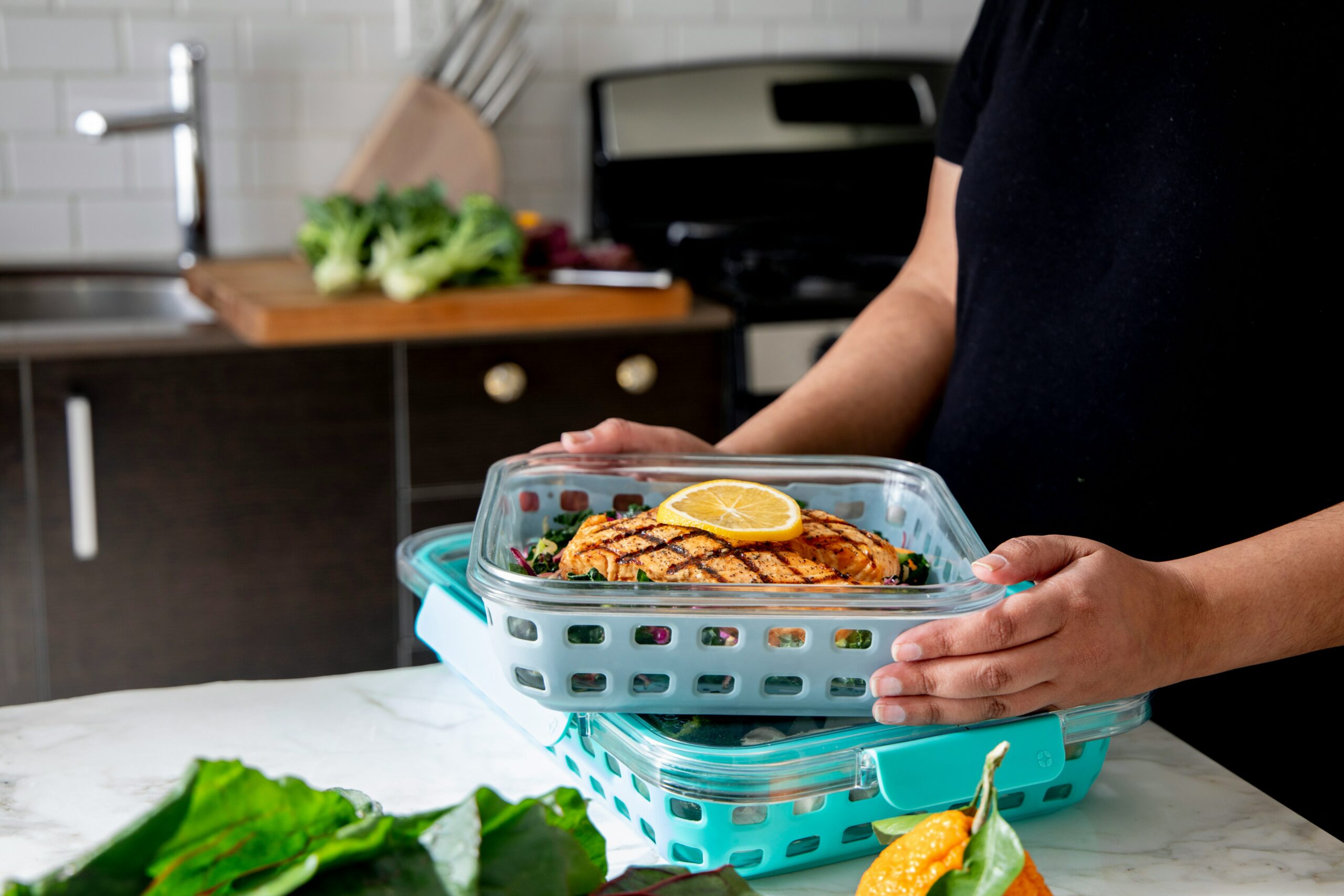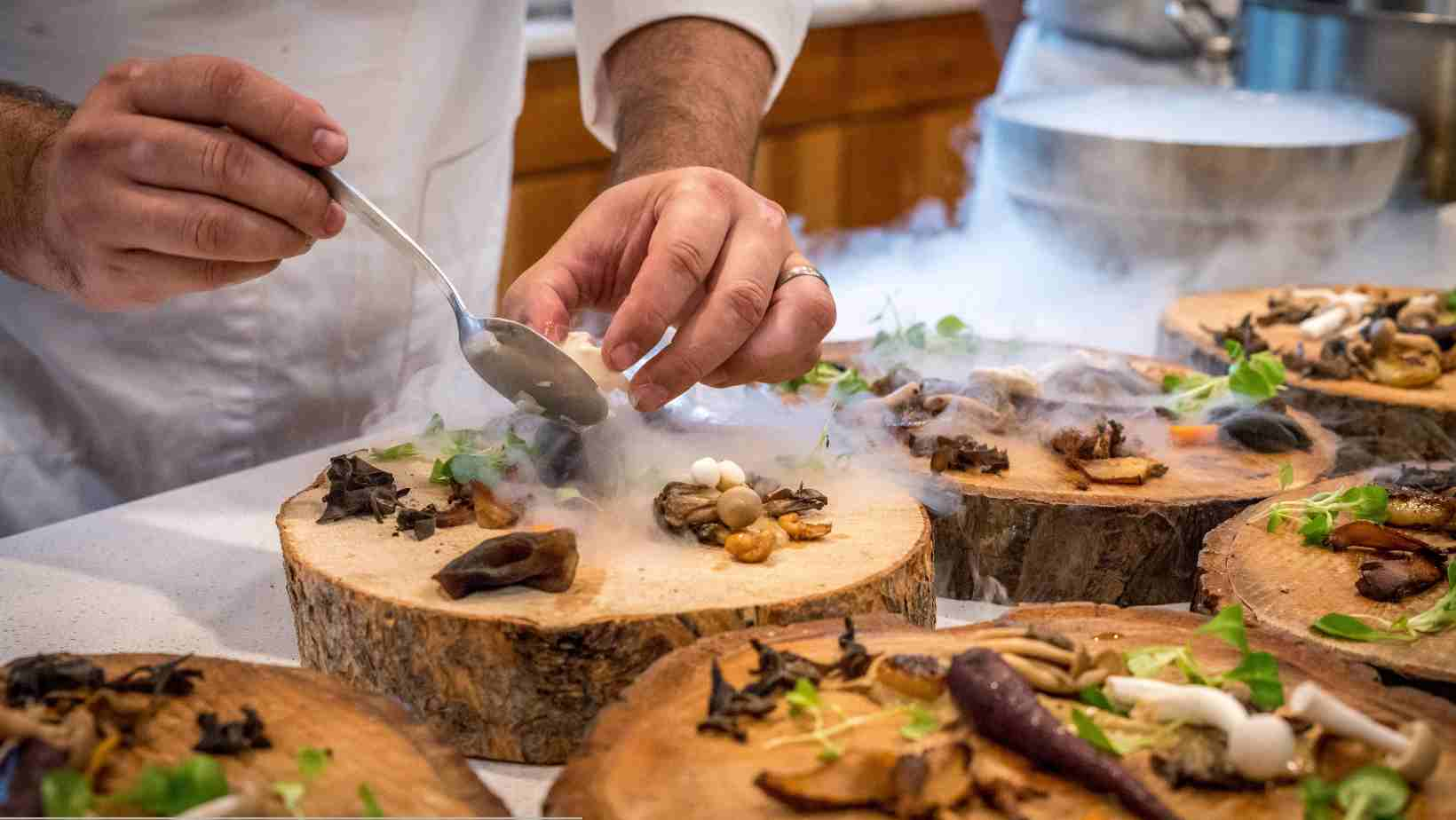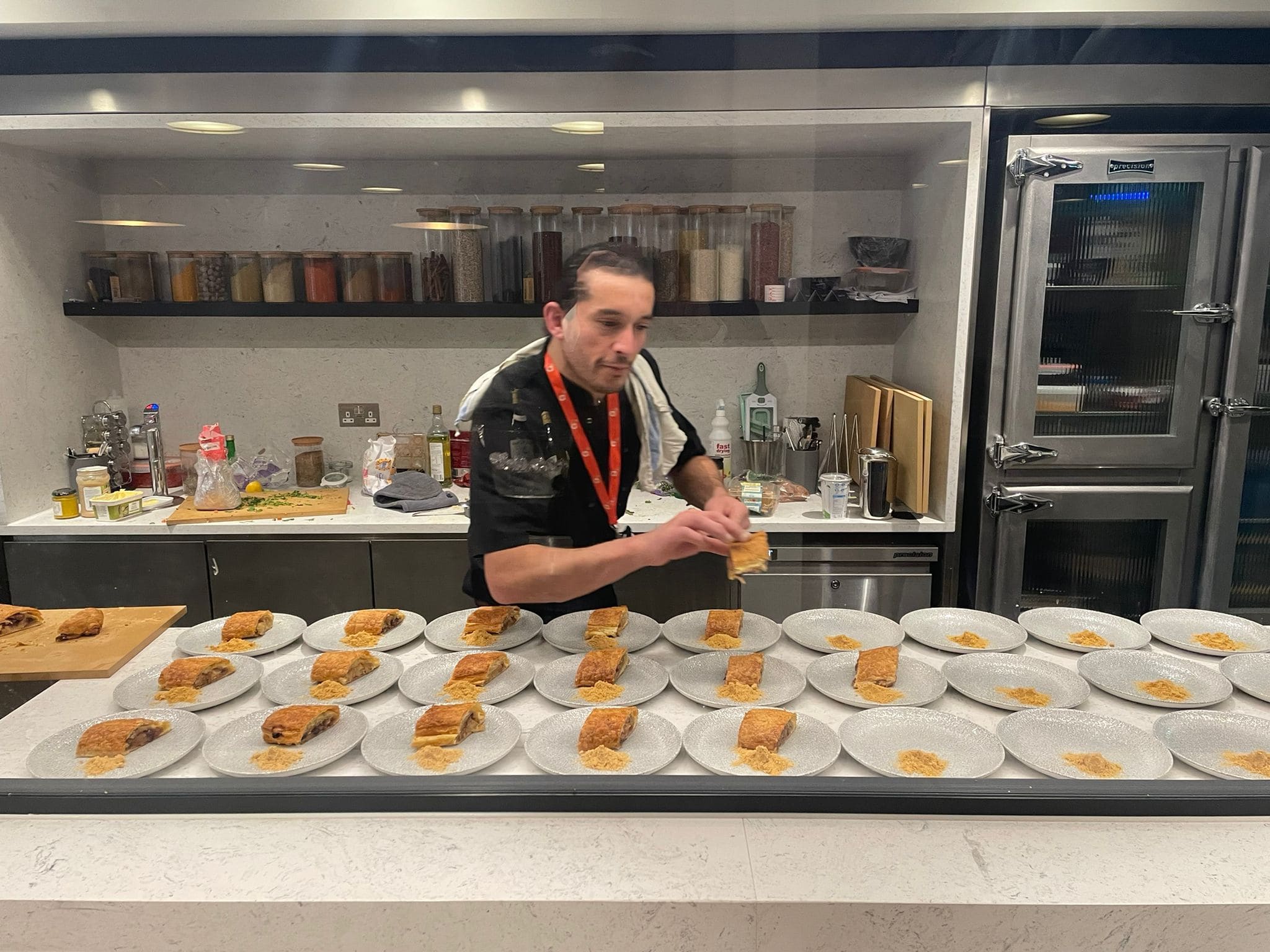Advantages Of Being A Private Chef in the UK
Is Being A Private Chef Worth It?
Whether you’re a seasoned restaurant chef or an aspiring private chef looking to pursue a full-time career or start your own private chef business, these chef job benefits will highlight why the role is worth considering:
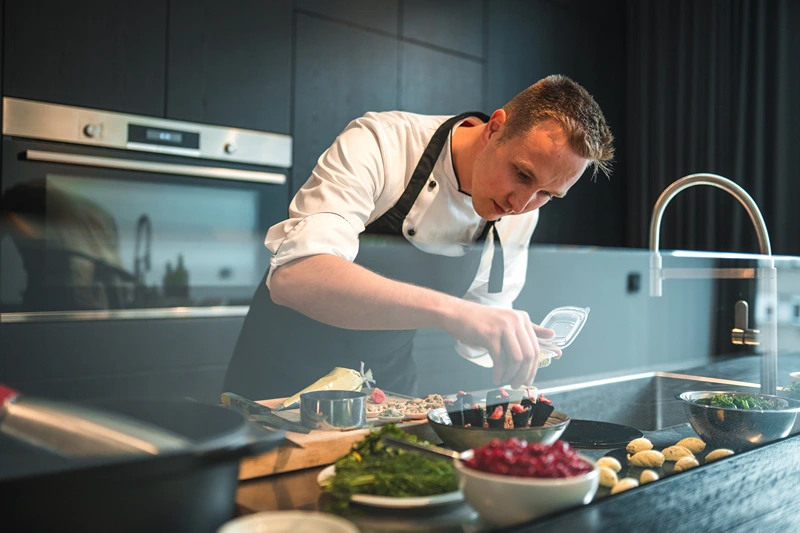
1. Flexibility and Independence
Unlike traditional restaurant roles, where chefs are often bound by long, unpredictable shifts, one of the most amazing benefits of being a private chef is the ability to set your own schedule. In fact, nearly half of UK chefs work between 48 and 60 hours a week, contributing to stress and burnout.
This has led to 85% of hospitality professionals experiencing poor mental health. Additionally, over 68% of hospitality workers have reported considering switching industries due to the lack of work-life balance and the unpredictability of their schedules.
As a private chef, you have the freedom to choose the clients you work with and the events you cater for, allowing you to strike a balance between your career and personal life. You decide how much you work, whether that’s full-time, freelancing, or running your own private chef business.
This autonomy is one of the most appealing positives of being a chef in a private setting, allowing you to tailor your work around your lifestyle for a more flexible and satisfying career.
2. Higher Earning Potential
Private chefs in the UK enjoy higher earning potential compared to traditional chef roles, showcasing one of the clear benefits to being a chef in a private setting. Full-time private chefs earn an average salary of £48,796 per year, ranging from £29,000 to £56,000, depending on their experience and location. Those based in high-demand areas like London typically earn more, with annual salaries ranging from £32,351 to £51,901.
Freelance private chefs, on the other hand, can set their own rates and typically earn between £16 and £25 per hour, depending on their skills and clientele.
For those wondering “Is being a chef worth it?”, freelancers who cater to high-net-worth clients or offer specialised services, such as event catering, can further increase their earnings. Some earn over £25,000 per month by managing high-volume bookings through platforms like Yhangry.
3. Personal and Professional Growth
One of the many good things about being a chef in a private setting is the significant potential it offers for both personal and professional growth. Unlike traditional kitchen roles, private chefs develop a broader range of skills, from menu planning to budgeting and managing client relationships. These responsibilities push chefs to refine their expertise while adjusting recipes to cater to dietary restrictions, such as gluten-free or vegan diets.
In private cheffing, one of the key chef job benefits is the opportunity to receive direct client feedback, allowing chefs to improve in real-time and foster ongoing growth. By participating in exclusive events and building strong client relationships, private chefs can also leverage networking opportunities to secure repeat business and higher-profile engagements, further advancing their careers.
4. Diverse Work Environments
Private chefs often cater in diverse settings, from luxurious homes and estates to high-end events and holiday retreats across the UK. This variety keeps the job dynamic and engaging, requiring chefs to adapt their skills to suit different kitchens, equipment, and client preferences. This opportunity to constantly evolve by working in new and unique environments is one of the key advantages of a chef in this industry.
In cities like London, where demand is high, private chefs often cater to high-net-worth individuals, offering bespoke experiences from intimate family meals to elaborate dinner parties while consistently maintaining high standards of food quality and presentation.
The benefits of becoming a professional chef in this setting are evident in the constant exposure to different cultures, cuisines, and dietary preferences, all of which contribute to professional growth.
5. Job Satisfaction and Client Relationships
In the UK, private chefs often find great job satisfaction through the personalised relationships they build with their clients. Unlike restaurant chefs, they work directly with clients, tailoring bespoke menus to fit specific dietary needs and preferences. This close collaboration fosters trust and often leads to long-term relationships and repeat engagements—one of the many answers to “what benefits do chefs get” in this field.
The creative freedom and immediate client feedback add to their professional fulfilment. For many, these personal connections and the autonomy they enjoy help them see the true value of the profession, answering the question, “is being a chef worth it?”—especially in the context of private cheffing, where the rewards extend beyond just the financial.
Realise Your Full Potential as a Private Chef in the UK
With so many advantages of being a chef in a private setting, it’s no surprise that demand for private chefs in the UK is soaring, with a 40% annual increase in enquiries and a remarkable 171% spike in 2020 alone. It’s an exciting time to step into private cheffing, but let’s be honest—getting started can feel like an uphill battle.
Whether you're hosting a special celebration dinner, looking for a chef during your holiday or weekly meal prep, we will match you to the perfect chefs.
Start hereIt requires time and effort to market yourself, secure clients, and build a steady stream of work. Even after landing clients, managing bookings, travel, and scheduling can turn what seems like a dream job into a juggling act.
That’s where platforms like yhangry change the game. We simplify the process by handling the marketing and sending you free customer leads, allowing you to focus on what you love most—cooking. With Yhangry, you can set your working hours and travel radius, helping you achieve a better work-life balance. Plus, we offer essential coverage, including public liability insurance, secure payments, and protection against last-minute cancellations.
So what are you waiting for? Let Yhangry streamline everything from client acquisition to secure payments and build a private chef career on your own terms.
- What qualifications do I need to be a private chef in the UK?
-
To become a private chef in the UK, it’s recommended to have an NVQ Level 2 or 3 in Professional Cookery, which covers essential culinary skills and food safety. Additionally, you must hold a valid Level 2 Food Safety and Hygiene Certificate to make sure you comply with food safety regulations and a DBS (Disclosure and Barring Service) certificate, especially if you’ll be working with vulnerable individuals or in family homes. Lastly, you must secure public liability insurance to protect yourself against any legal claims related to your services.
- How to become a private chef with no experience?
-
Start with formal culinary training, like an NVQ Level 2 in Professional Cookery, or take short courses in food safety. Gain hands-on experience by working in kitchens or offering to cook for friends and family to build a portfolio. Networking is crucial—attend culinary events, connect with industry professionals, and use platforms like Yhangry to secure freelance opportunities and grow your client base.
- How many hours does a private chef work?
-
The hours a private chef works can vary greatly depending on their employment type and client needs. Full-time private chefs in the UK typically work between 8 to 12 hours a day, often covering 40 to 60 hours per week. During busy periods or events, hours can extend beyond this, particularly for chefs serving high-net-worth clients or large gatherings. Freelance chefs experience more variability, with workloads ranging from 20 to 30 hours per week, but this can spike around holidays and weekends.
- How to start a personal chef business from home?
-
To start a personal chef business from home, first, ensure you have the required culinary skills and a Level 2 Food Hygiene Certificate. Register your kitchen with the local council to meet food hygiene standards and set up a professional business plan that includes services, pricing, and target clients. Build your brand by sharing your work across social media and maintaining a website to attract potential clients. You can also use platforms like Yhangry to connect with clients and grow your business.

